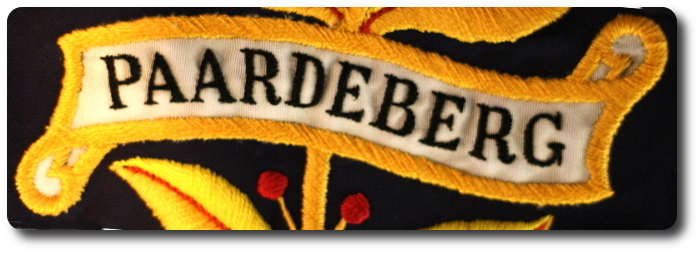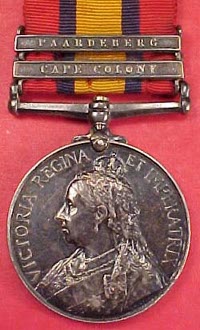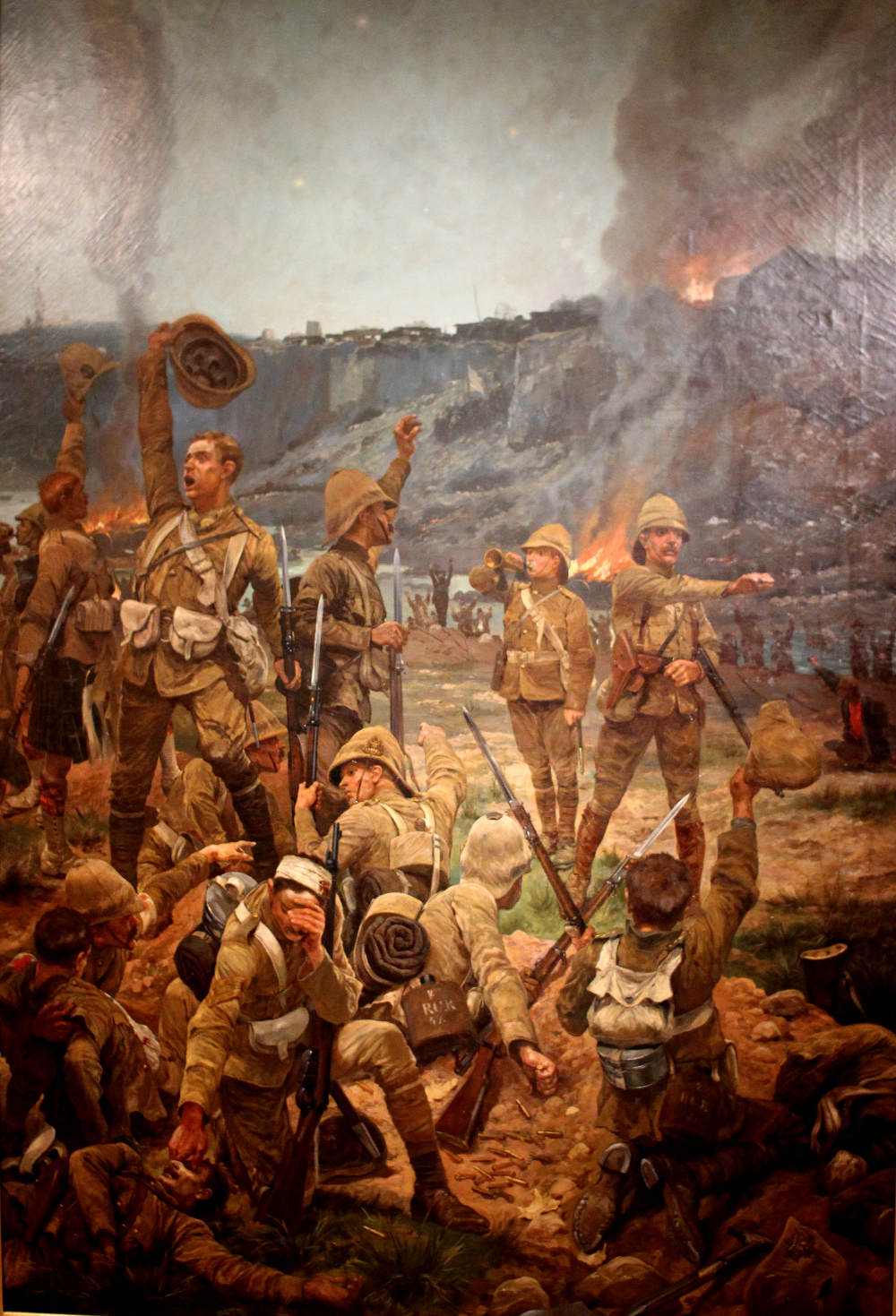Topic: Paardeberg

The Days After Paardeberg
The Canadian General Sir William Otter, Desmond Morton, 1974
 In immediate recognition of their feat [at Paardeberg], the Canadians were ordered to move forward to take possession of the Boer laager, a particularly nauseous honour since the shattered camp was "littered with dead animals, broken or burned waggons, trunks, mattresses, saddles, harness, tents and parts of household furniture &c., while the smell was fearful. "Personally I possess little of that sense but it was weeks before the horrible odour of the Laager left me." As Canadians scrambled for appropriate souvenirs, firm orders arrived that nothing was to be touched; instead, the battalion was to stand by for an inspection by Lord Roberts. Accordingly, they remained for most of the day under arms and ready, although it was after 4.00 p.m. when the elderly commander-in-chief appeared with his personal congratulations. Rather more appreciated were two bottles of champagne, a present from General Hector Macdonald for wiping out the shame of Majuba. They were not shared with the men who, instead, gorged themselves on pancakes made from supplies of cornmeal and flour found in some of the wrecked waggons." The effect of so much badly cooked and hastily eaten food was rather disastrous with a good many," McHarg recalled, "but they doubtless thought it was better to run the chance of a 'pain' than continue hungry."
In immediate recognition of their feat [at Paardeberg], the Canadians were ordered to move forward to take possession of the Boer laager, a particularly nauseous honour since the shattered camp was "littered with dead animals, broken or burned waggons, trunks, mattresses, saddles, harness, tents and parts of household furniture &c., while the smell was fearful. "Personally I possess little of that sense but it was weeks before the horrible odour of the Laager left me." As Canadians scrambled for appropriate souvenirs, firm orders arrived that nothing was to be touched; instead, the battalion was to stand by for an inspection by Lord Roberts. Accordingly, they remained for most of the day under arms and ready, although it was after 4.00 p.m. when the elderly commander-in-chief appeared with his personal congratulations. Rather more appreciated were two bottles of champagne, a present from General Hector Macdonald for wiping out the shame of Majuba. They were not shared with the men who, instead, gorged themselves on pancakes made from supplies of cornmeal and flour found in some of the wrecked waggons." The effect of so much badly cooked and hastily eaten food was rather disastrous with a good many," McHarg recalled, "but they doubtless thought it was better to run the chance of a 'pain' than continue hungry."
 After a disagreeable day and night in the laager, the R.C.R. marched with the rest of the army a few miles up the Modder to Kodoes Rand. For almost a week the army of 30,000 men bivouacked while its commanders sorted out the administrative chaos and considered their next move. The rainy season had firmly arrived and the troops, lacking tents or other shelter, were constantly cold and wet. While officers had tarpaulins pulled from waggons to make themselves makeshift tents, the men paired up to errect tiny shelters with their blankets and rubber sheets. The Canadians grumbled that their own blankets were cheap, thin, and inadequate when compared to those issued to the British soldier. Indeed, much of the equipment issued to the Canadians had turned out to be utterly unsuitable, beginning with the water bottle, which Otter had simply exchanged for the British issue, including the uniquely Canadian "Oliver" equipment which chafed under the arms and became brittle after constant wetting and drying, and the greatcoats which were too thin to provide adequate protection for the chill nights on the veldt. Worst of all were the canvas uniforms. According to A.S. McCormick, a veteran of the contingent, "they were so stiff that until they became pliable and softer after a week's wear they irritated and inflamed the groin. After being rained on several times they fell apart. Sleeves would fall off and sometimes the tunic below the belt." After three months of constant wear, most of the men were in rags and, with the British transport organization struggling to provide the army with half-rations, there was no possibility of getting extra clothing, blankets or even mail.
After a disagreeable day and night in the laager, the R.C.R. marched with the rest of the army a few miles up the Modder to Kodoes Rand. For almost a week the army of 30,000 men bivouacked while its commanders sorted out the administrative chaos and considered their next move. The rainy season had firmly arrived and the troops, lacking tents or other shelter, were constantly cold and wet. While officers had tarpaulins pulled from waggons to make themselves makeshift tents, the men paired up to errect tiny shelters with their blankets and rubber sheets. The Canadians grumbled that their own blankets were cheap, thin, and inadequate when compared to those issued to the British soldier. Indeed, much of the equipment issued to the Canadians had turned out to be utterly unsuitable, beginning with the water bottle, which Otter had simply exchanged for the British issue, including the uniquely Canadian "Oliver" equipment which chafed under the arms and became brittle after constant wetting and drying, and the greatcoats which were too thin to provide adequate protection for the chill nights on the veldt. Worst of all were the canvas uniforms. According to A.S. McCormick, a veteran of the contingent, "they were so stiff that until they became pliable and softer after a week's wear they irritated and inflamed the groin. After being rained on several times they fell apart. Sleeves would fall off and sometimes the tunic below the belt." After three months of constant wear, most of the men were in rags and, with the British transport organization struggling to provide the army with half-rations, there was no possibility of getting extra clothing, blankets or even mail.

Dawn of Majuba, (surrender of Cronje), Morning After
R. Caton Woodville. London. 1900


